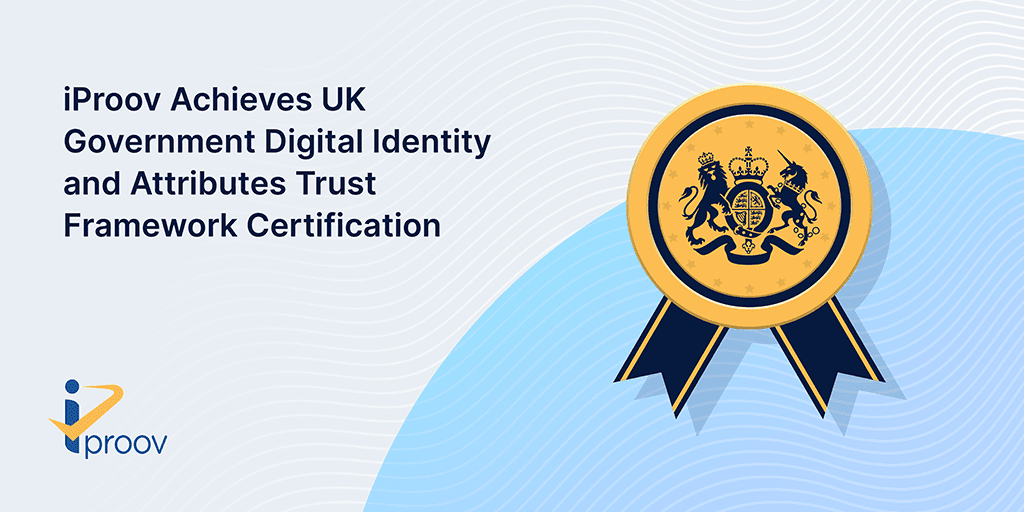June 1, 2023
iProov, the world leader in facial biometric authentication technology, today announced it has achieved certification against the UK Government’s Digital Identity and Attributes Trust Framework (DIATF), co-created by identity stakeholders and the Department for Science Innovation and Technology (DCIT).
Having undergone a rigorous independent assessment by the British Assessment Bureau of its technology, security, and processes, iProov is now a certified Digital Identity Service Provider (IDSP). This enables it to provide digital identity verification services via its Biometric Solution Suite for Right to Work and Right to Rent services managed by the Home Office and DBS, as well as other future use cases which require the DATF accreditation.
As the UK government actively embraces digital transformation, more of its services are delivered online and this creates more opportunities for fraudulent transactions to occur. Similarly, individuals accessing the service want to be confident that the service they are using is secure, cost effective and easy to use. Consequently, being able to verify the identity of the individual accessing the service is genuine is essential. The DIATF forms part of the government’s plan to respond to these requirements and make verification using modern technology quicker and easier. It ensures the companies that are part of the digital identity ecosystem are held accountable to high standards under strict governance and for individuals it establishes clear standards with certified IDSPs, allowing them to confirm their identity remotely while reducing the risk of fraud.
“Certifications like this are a key milestone and part of what makes iProov special,” says Andrew Bud, founder & CEO, iProov. “We’ve supported the creation of the UK Trust Framework since its inception and we see it as central to solving the UK’s complex identity puzzle. It gives confidence to both users and organisations that they are using a capable provider to establish that most precious of assets between them – trust.”
Moving forward, the government has plans to introduce legislation to create a digital “trust framework” to oversee robust accreditation and certification where companies can prove their adherence to a set of rules and criteria. This will enable a legal gateway between public and private sector organizations for data checking and aims to establish the validity of digital ID. The government has highlighted that these measures would be relevant to processes where consumers are often required to prove their identity multiple times.
